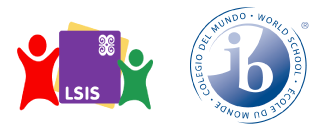As part of our ongoing curriculum review, the Lower School looks closely and carefully at its Reading and Writing programs and instruction. The intent is to build a powerful “vertical curriculum” that aligns itself closely with what is done in the Middle and Upper Schools. Results of this work include the school-wide adoption and shared understanding of the term “Writing Workshop” and a purposeful writing curriculum.

Launching Great Writing Habits
Reading Workshop also gives students the time and opportunities to communicate about reading with their teachers and their peers – both orally and in writing. They have choices about what they read and have guidance that encourages them to select books that will best help them grow as a reader – what we call a “just right” book. Teachers will also steer students to select not only a “just right” book, but also books that help develop an expansive reading identity. For that to happen, we might encourage a child who reads exclusively in one genre (fantasy, for example) to try reading historical fiction or we might tell a child they are ready to read something a little longer. Sometimes, though, we’ll guide a child towards something easier, as reading “too hard” books can result in children simply decoding words, rather than reading for purpose and meaning. Through these kinds of discussions with children, we help them envision a reading life they want to make for themselves. The goals of our reading instruction are to develop competence, enjoyment, and understanding.These are the characteristics we teach and observe every day in Reading Workshop.
Learning Good Reader Habits
As part of the Lower School writing curriculum, students in grades kindergarten through fifth now begin the year with a “Launch” writing unit. “Launch” is designed and planned so students learn and practice habits and routines that will empower them to write joyfully and independently throughout the year. In this unit, students identify the tools and materials writers use, and they organize “containers” for their writing (from a two-pocket folder in kindergarten to a virtual folder on a fifth-grade tablet PC). They set writing goals and begin to see themselves as part of a community of writers. They brainstorm, talk, collaborate, peer-edit, self-edit, and of course, they write!
Through “Launch,” Lower School students learn that some of their favorite books are based on memories and wonderings. This gives dignity and importance to their own memories and ideas. They internalize the habits of good writers and practice them every day. In upcoming units, they eventually learn writing conventions and structures to help express themselves clearly. They will read and write in different genres and practice spelling, grammar and handwriting. But it’s this first unit that sets the stage for the year, building habits and routines that inform the Lower School’s Writing Workshop unit, for the remainder of the year.
Setting the Stage for Writing Workshop
Typical writing workshop characteristics include routines and expectations for the amount of time for writing and publication rituals. In a workshop, students decide what they’ll be writing about – their content – for writing projects all year long. Writing is about having something to say, and it’s up to the writer to decide what is worth saying and how they will say it. In a writing workshop, teachers do not make this decision for students. They do, however, help children elaborate on their initial thoughts. The element of choice does not mean, however, that there is no structure. A good writing workshop has significant structure.
The Writing Workshop
The content of the workshop changes from day to day, but the outcome – strong, joyful, independent writers – stays the same. In the Lower School, we have daily workshops because we know students need lots of time and experience working on writing and reading, and we know this needs to happen every day. The “everydayness” of Writing Workshop allows the rituals to develop so students can handle the ever-changing content.
Writing Workshop to be successful, teachers and students need to understand that it is a time of day, not a set of directions or activities to be completed. Specifically, it is a time of day when students from kindergarten to fifth grade make choices about the work they will do as a reader or writer. The key to a successful Writing Workshop is that students know the range of ways they can spend their time productively.
Based on the lesson that starts the workshop, students may be starting new pieces, revising old ones, editing to get a piece ready for publication or sharing with a writing partner. We work hard in the Lower School to keep this time predictable and routine.

